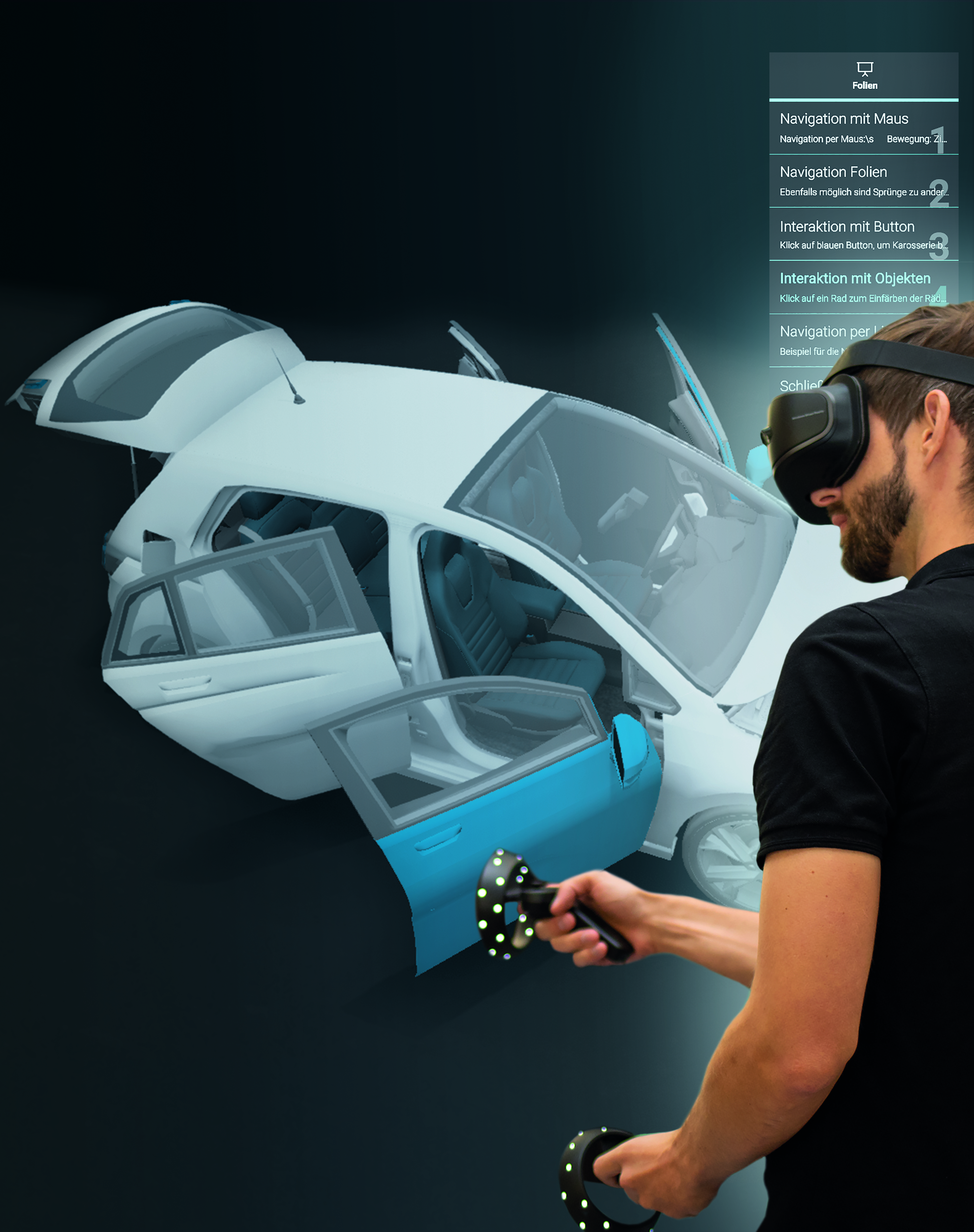
The rapid rise of alternative powertrains means auto-industry employees must frequently update their skillsets. Changes in propulsion technology, sensors, wiring and much more are leading to new work processes in manufacturing, servicing, and maintenance. The increasing deployment of robots, too, is fueling the need for more training. Virtual reality (VR) can help production staff to acquire up-to-date skills, and is proving particularly effective with the transition to electric vehicles (EVs).
Machine@Hand 2.0, a software solution developed by Fraunhofer IGD, allows complex assembly tasks to be explained in simple terms, and shows staff how to handle component variants. The integrated authoring tool enables instructors to directly upload vehicle systems and their individual components in the form of 3D or CAD models, and to use them as templates for VR training sessions. As a result, instructors can create customized training scenarios without the need for programming skills. The flexible, powerful virtual environment accurately depicts the complexity of real-world assembly lines, including production equipment, materials, the physical environment, and tools. This means that each individual work task can be tested and trained in virtual reality. The experience gained is employed to optimize assembly-line stations and work activities for new vehicle models and component variants, and is instrumental in improving industrial health and safety. Ultimately, each worker knows exactly what to do and when, even before the first vehicle rolls off the production line.
Interested in a free demo version?
 Fraunhofer Institute for Computer Graphics Research IGD
Fraunhofer Institute for Computer Graphics Research IGD